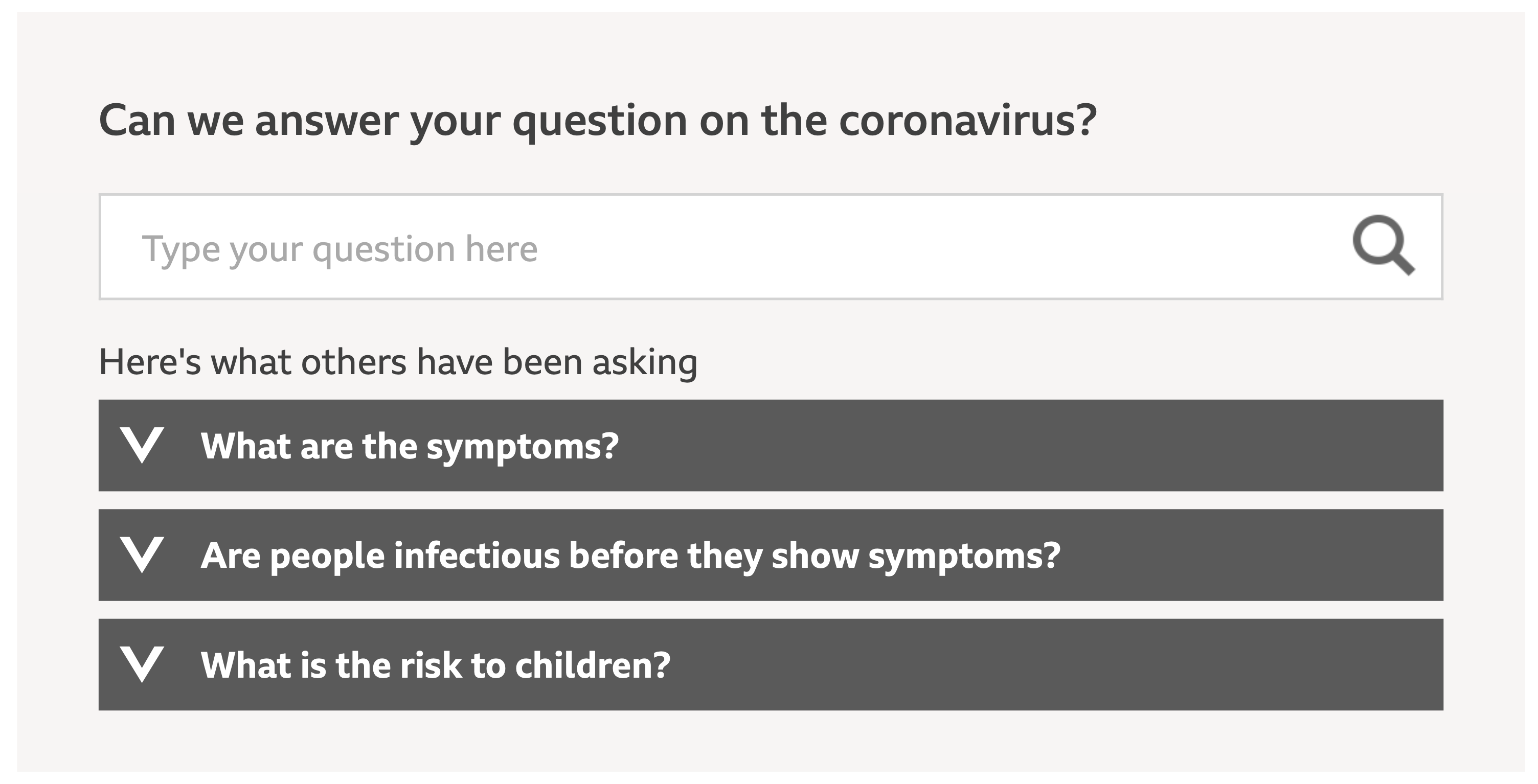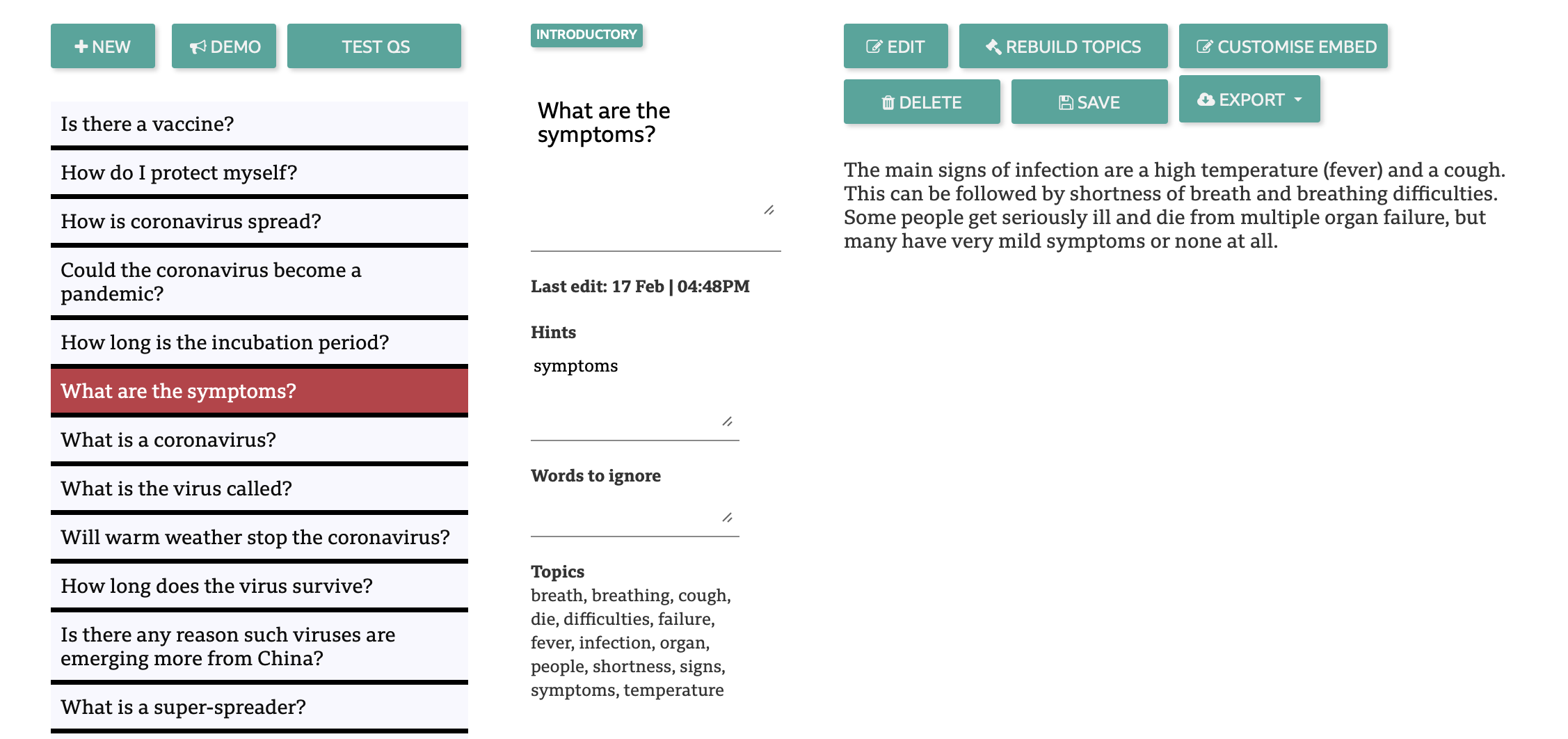
BBC News is experimenting with a new way of answering readers' most common questions while avoiding repetition of background information and explanation of key terms.
Similar to a search engine, the explainer builder allows users to search and find answers to the most frequently asked questions by readers, with answers written by the BBC journalists.
Roo Hutton, senior software engineer at BBC News Labs, explained that over the last couple of years there has been a focus on explaining stories in a way that people can understand if they are coming to the topic for the first time.
"Brexit was a big motivator for this. There was a hugely complicated story and yet it was everywhere.
"If you are reading an article and you’re not particularly clued up on all the terminology, it can be quite alienating."
Instead of building background into every story, Hutton explained, his team created more context and explainer articles but soon realised that these were hard to navigate as they were often thousands of words long.
"We were looking to see if we could build something that is both more accessible to the audience and also easier for journalists to maintain."

BBC News Labs
Work started on the 'explainer builder' last year, initially to be used as an evergreen resource to add context to stories such as climate change and the US presidential elections, that do not need updating on a daily basis.
However, as the covid-19 pandemic began to escalate, the real potential for the feature and the need for constant updating with new questions became clear.
"As we've got fewer, more stretched journalists who aren't necessarily working on their usual beat, that means that we have a tool we can use, take questions that relate to your coverage and embed it in your story, without having to do that kind of background research yourself."
Hutton explained that the BBC’s 'Your Questions Answered' initiative, which accumulates questions from readers on a daily basis, helped give journalists and the engineers a good idea of what sort of questions people were asking when initially creating the feature. The questions the outlet receives also acted as a way of informing what extra areas need to be covered as the topic is updated, particularly amid the coronavirus crisis.
Once questions are selected, reporters best suited to answer them write a short piece of conversational copy to help clarify the query.
"The questions we are getting are much more about people’s everyday lives (amid the outbreak) and by capturing those, we can respond in a way that actually meets their needs, rather than us coming up with the most generally important content."

BBC News Labs
The project is still in its infancy and, given its regular deployment on stories relating to covid-19, it is too early to asses how it has impacted engagement on the BBC News website.
However, Hutton said that almost 60 per cent of readers of covid-19 stories have engaged with the explainers. Similarly, close to 30 per cent engage with the feature on stories about the Democratic primaries. According to Hutton, this shows an appetite for the format as a way of explaining the story.
The project is a useful knowledge base not only for audiences but also BBC reporters to understand certain news stories, with the potential to reuse some questions for recurring events, such as the US election.
Experiments are also underway to tailor the tool for audiences in other countries, with the potential to not only translate but to augment the explainer to the needs and questions of overseas readers.
Free daily newsletter
If you like our news and feature articles, you can sign up to receive our free daily (Mon-Fri) email newsletter (mobile friendly).
Related articles
- Navigating the future of food journalism: six key challenges and solutions
- Six self-care tips for journalists to stay sane during the general election
- Nimble, disciplined and different: How The Mill is swimming against the tide of journalism hardships
- What publishers can learn from gaming
- Why PressPad closed down, with Olivia Crellin









